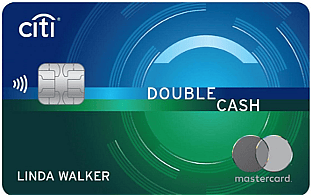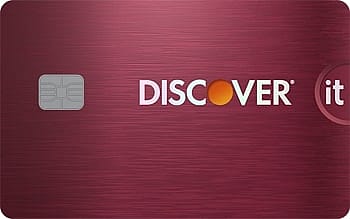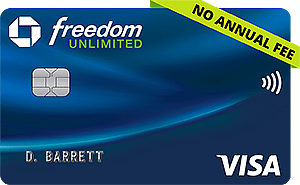Uber Credit Card Review: No Longer Available
The Bottom Line
3.8
This card has been discontinued. It was once a strong pick for Uber devotees, but its limited redemption options made it a poor choice for less frequent Uber customers.


Rates, fees and offers
Rates, fees and offers
Annual fee
$0
Rewards rate
1%-5%
Bonus offer
Earn $100 Uber Cash after spending $500 on purchases in the first 90 days.
Intro APR
N/A
Ongoing APR
APR: 15.74%-26.49% Variable APR
Cash Advance APR: 26.74%, Variable
Balance transfer fee
Either $10 or 3% of the amount of each transfer, whichever is greater
Foreign transaction fee
0%
More details from Barclays
More details from Barclays
- Earn $100 Uber Cash after spending $500 on purchases in the first 90 days
- 5% back in Uber Cash on Uber, Uber Eats, and JUMP
- 3% back in Uber Cash on dining, hotels, and airfare
- 1% back in Uber Cash on all other purchases
- No annual fee
- Automatically transfer your Uber Cash balance to your Uber Account once you earn $50 in Uber Cash
- Up to $600 for mobile phone damage or theft when you pay your mobile phone bill with your card
Pros and Cons
Pros
No annual fee
No foreign transaction fee
Cons
No intro APR period
Detailed Review
» The Uber Credit Card is no longer available
Barclays stopped accepting applications for the Uber Credit Card in 2020 before discontinuing the card entirely in October 2021. Cardholders were switched to a different card, the Barclays View Mastercard. Here's how that card compared with what the Uber Credit Card was offering at the time it was discontinued:
| Empty Table Header | Uber Credit Card | Barclays View Mastercard |
|---|---|---|
Annual fee | $0. | $0. |
Rewards |
|
|
Benefits | Standard Visa and Visa Signature core benefits. | Standard Mastercard Core benefits including rental car coverage, ID theft protection and Mastercard Global Services. |
Below is our review of the Uber Credit Card from when the card was still available.
• • •
The Uber Credit Card was once a great match for one kind of consumer: the Uber power user.
It's no longer gettable, but when it was, no other consumer credit card offered the same uncapped 5% rewards rate on Uber spending. The $0-annual-fee card, which was issued by Barclays, also offered a healthy rate back on certain other kinds of travel expenses as well as dining. But the rewards came in the form of Uber Cash, which could only be redeemed for Uber spending, including spending on Uber rides and Uber Eats. That made it a much less flexible option than general rewards cards with similar bonus categories. (An earlier version of this card offered true cash back.)
Again, this card is no longer available, but below is what it used to offer, for reference:
Key features of the Uber Credit Card
Card type: Rewards.
Annual fee: $0.
Rewards:
5% back in Uber Cash on Uber, Uber Eats and bike and scooter rides through Jump, an electric scooter and bike service owned by Uber. (This did not include purchases of Uber gift cards or direct purchases of Uber Cash.)
3% back in Uber Cash on eligible dining, hotels and airfare.
1% back in Uber Cash on all other purchases.
APR: 15.74%-26.49% Variable APR.
Balance transfer fee: Either $10 or 3% of the amount of each transfer, whichever is greater.
Foreign transaction fee: None.
Other benefits:
Cell phone insurance: Up to $600 in coverage for damage or theft when you used your card to pay your monthly bill. A $25 deductible applied. (Maximum of two claims and $1,000 per 12-month period. Terms apply.)
Compare to Other Cards
Vacation more, spend less. Subscribe to our free newsletter for inspiration, tips, and money-saving strategies – delivered straight to your inbox.
By signing up, you will receive newsletters and promotional content and agree to our Terms of Use and acknowledge the data practices in our Privacy Policy. You may unsubscribe at any time.
Benefits and Perks
High rewards rate on Uber purchases
While other cards offer rewards on Uber through broader categories such as travel or transit, the rewards rates are either lower, typically 2% or 3%, or come with spending caps that limit your earning potential.
Solid dining and travel rewards
Earning 3% back on eligible dining, hotels and airfare is competitive with — and in some cases better than — what you'd find with other no-fee cards.
Dining purchases that qualified for that 3% rate with the card included restaurants, fast-food establishments and bars. Airfare, hotels, vacation rentals, travel agencies and home-share exchanges also qualified for 3% back.
Light on fees
The card's annual fee was $0, and it also charged no foreign transaction fee. As a Visa, it was widely accepted internationally, so it made for a good travel companion, at least when it cane to earning rewards. (Redemption was another story; see below.)
Drawbacks and Considerations
Limited redemption options
Uber Cash can be used only toward qualifying Uber purchases. While that includes Uber Eats, which is useful for those who order in a lot, it's still pretty limited compared to the cash back you can earn on other cards. It's also worth noting that you cannot use Uber Cash outside the United States.
If it's flexibility and a high cash-back rate on Uber rides that you want, you might consider the U.S. Bank Cash+® Visa Signature® Card. It earns 5% cash back in two categories you pick from a list of a dozen (see the list below), on up to $2,000 spent per quarter on combined purchases; 2% back in an everyday category you pick (such as grocery stores, gas stations or restaurants); and 1% back elsewhere. One of those 5% options is "ground transportation," which includes Uber and Lyft, but again, those rewards are capped.
Full list of 5% categories on the U.S. Bank Cash+
Fast food.
Home utilities.
TV, internet and streaming.
Department stores.
Cell phone providers.
Electronics stores.
Sporting goods stores.
Movie theaters.
Gyms/fitness centers.
Furniture stores.
Ground transportation.
Select clothing stores.
Modest sign-up bonus
The Uber Credit Card's sign-up bonus was relatively small, even for a $0-annual-fee card. It once offered $100 in Uber Cash after spending $500 on purchases in the first 90 days.
That paled in comparison to, say, the Bank of America® Travel Rewards credit card. It earns 1.5 points per $1 spent and offers the following sign-up bonus: 25,000 online bonus points after you make at least $1,000 in purchases in the first 90 days of account opening - that can be a $250 statement credit toward travel purchases..
No 0% intro APR period
For an introductory 0% APR offer with similar bonus categories, the Capital One Savor Cash Rewards Credit Card is a good choice. It earns unlimited 3% cash back on dining, entertainment, popular streaming services and at grocery stores (excluding superstores like Walmart and Target); 5% back on hotels, car rentals and vacation rentals booked through Capital One Travel; and 1% on all other purchases. Plus, it offers a sign-up bonus and 8% back on Capital One Entertainment purchases.
If you'd like to see how these cards stack up against competitors, visit NerdWallet's best credit cards roundup.
Looking For Something Else?
Methodology
NerdWallet reviews credit cards with an eye toward both the quantitative and qualitative features of a card. Quantitative features are those that boil down to dollars and cents, such as fees, interest rates, rewards (including earning rates and redemption values) and the cash value of benefits and perks. Qualitative factors are those that affect how easy or difficult it is for a typical cardholder to get good value from the card. They include such things as the ease of application, simplicity of the rewards structure, the likelihood of using certain features, and whether a card is well-suited to everyday use or is best reserved for specific purchases. Our star ratings serve as a general gauge of how each card compares with others in its class, but star ratings are intended to be just one consideration when a consumer is choosing a credit card. Learn how NerdWallet rates credit cards.
About the authors

Sara Rathner
Senior Writer/Spokesperson
Kimberly Palmer
Senior Writer/Spokesperson


